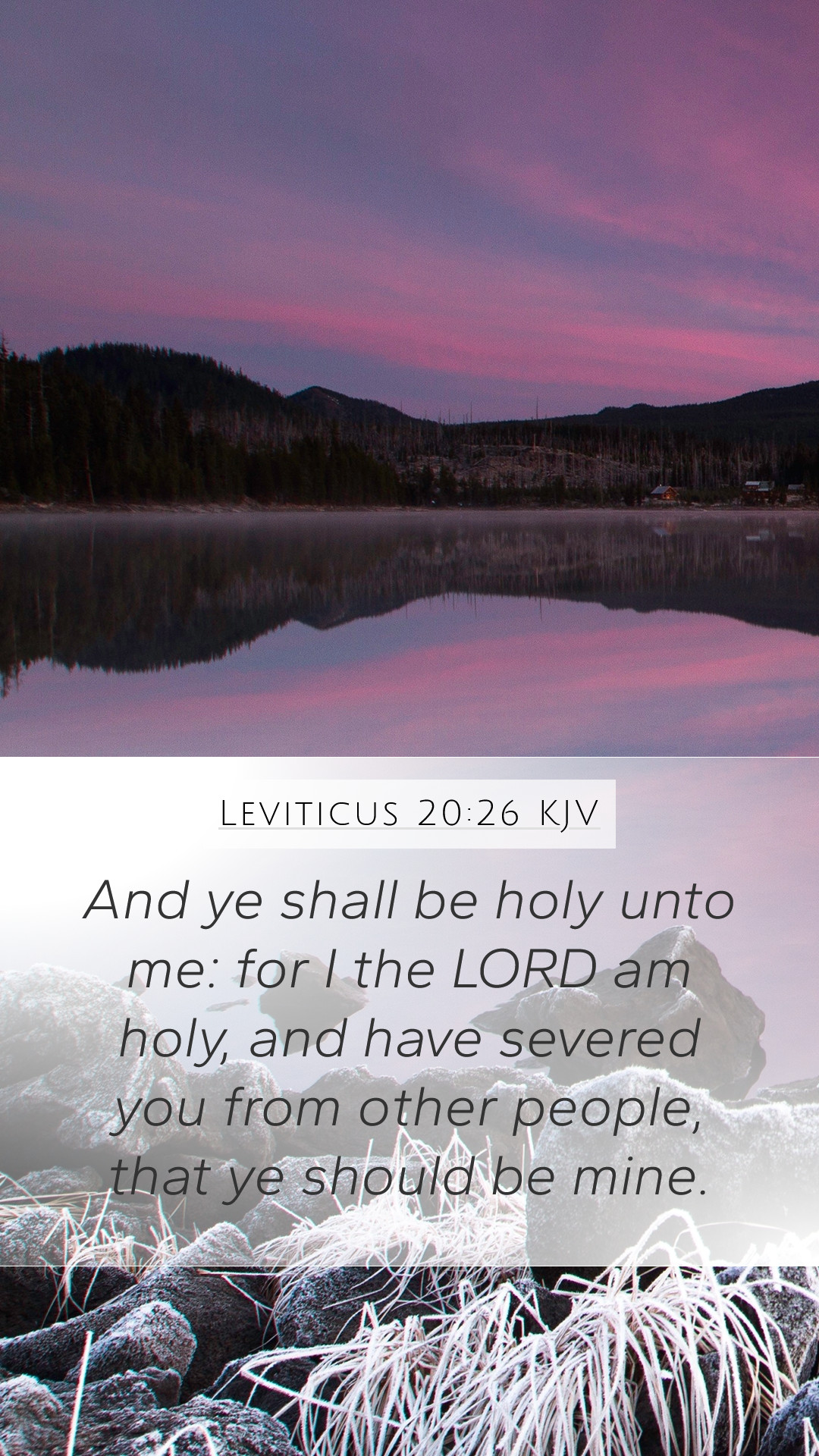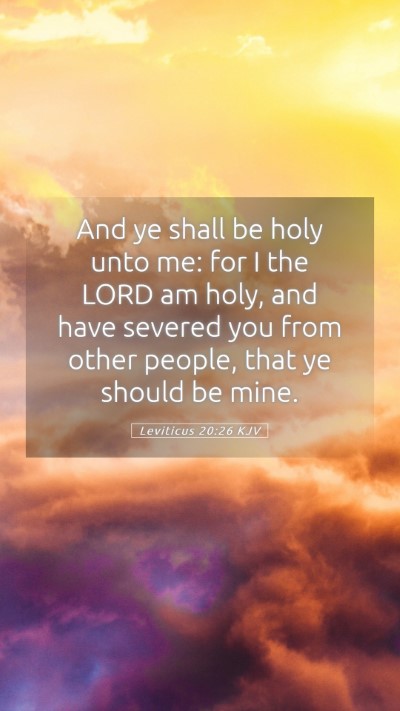Understanding Leviticus 20:26
The Bible verse Leviticus 20:26 states, "And ye shall be holy unto me: for I the Lord am holy, and have severed you from other people, that ye should be mine." This verse emphasizes the call to holiness and separation for God's people, a theme that echoes throughout Scripture.
Bible Verse Meanings and Interpretations
Leviticus 20:26 is a profound declaration of God’s expectation for His people. Below, we explore interpretations drawn from renowned public domain commentaries:
-
Matthew Henry Commentary:
Henry emphasizes the concept of holiness as central to the relationship between God and His people. He notes that God's holiness is not just a characteristic but a demand placed upon those He calls to be His own. The 'separation' referenced indicates a divine choice, setting Israel apart from other nations to reflect God's glory and moral standards.
-
Albert Barnes' Notes on the Bible:
Barnes highlights that to be "holy" means to be distinctively different, illustrating the moral and ethical standards that God expects from His people. He points out that this Holiness leads to a unique identity, distinguishing them from surrounding nations, and signifies a special relationship with God.
-
Adam Clarke's Commentary:
Clarke discusses the implications of being "severed" from other peoples, interpreting this as God's desire for His followers to remain pure and undefiled by the practices of other nations. He stresses the importance of this separation as not merely physical but also moral and spiritual.
Bible Study Insights
The importance of this verse extends beyond its immediate cultural context. Through Bible verse commentary, we can derive several key insights:
-
Holiness as a Lifestyle:
Being holy involves a way of life that is reflective of God's nature. It is a call to ethical living, which is necessary for spiritual growth.
-
Divine Ownership:
The phrase "that ye should be mine" underscores the personal relationship God desires with His people. This divine ownership demands loyalty and devotion.
-
Historical Context:
Understanding the historical context of Israel's call to holiness sheds light on the cultural and social constructs of the time and how those believers were to distinguish themselves from surrounding nations.
Significance of Leviticus 20:26
This verse carries profound significance in both the Old and New Testaments as it sets a foundation for understanding grace, holiness, and the believer's identity in Christ. It lays groundwork for:
-
The Nature of God:
Realizing that God's holiness affects His people profoundly and should inform the way they interact within the world.
-
The Concept of the Church:
As the New Testament depicts believers as the body of Christ, this call to holiness continues in the Christian community.
-
Sanctification:
Believers today are called to reflect God's character in their lives, symbolizing a continual process of becoming more like Him.
Application of Leviticus 20:26
In applying this verse to daily life, believers are encouraged to:
- Engage in Personal Reflection: Consider areas of life that may need to align more closely with God's character.
- Participate in Community: Engage with Bible study groups that focus on discussing holiness and implications for modern living.
- Utilize Bible Study Tools: Resources like commentaries and study guides can enhance understanding of the scriptures.
Cross References
Leviticus 20:26 relates to several other passages that elaborate on the theme of holiness and separation:
- 1 Peter 1:16: "Because it is written, Be ye holy; for I am holy."
- 2 Corinthians 6:17: "Wherefore come out from among them, and be ye separate, saith the Lord."
- Exodus 19:6: "And ye shall be unto me a kingdom of priests, and an holy nation."


